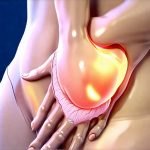Urinary tract infections (UTIs) are incredibly common, affecting millions of people each year—disproportionately women, but certainly impacting men as well. While unpleasant at any time, many individuals report that UTI symptoms feel significantly worse at night. This isn’t merely a matter of psychological perception; several physiological and circumstantial factors converge to amplify discomfort when trying to sleep. Understanding why this happens can offer valuable insight into managing the condition and seeking appropriate care. It’s important to remember that experiencing these intensified symptoms doesn’t necessarily mean your UTI is more severe, but it does highlight how our bodies change during rest, potentially exacerbating existing irritation.
The nocturnal worsening of UTI symptoms often leads to disrupted sleep, creating a vicious cycle. Painful urination, the urgent need to void, and general discomfort can all prevent restful slumber, contributing to fatigue and weakening the immune system—potentially making recovery more challenging. This article will delve into the reasons behind this nighttime aggravation, exploring the physiological changes that occur during sleep, how positioning affects symptom presentation, and what steps you might consider (in consultation with a healthcare professional) to navigate these frustrating experiences. We’ll focus on understanding the why rather than offering treatment advice, as personalized medical guidance is crucial for managing UTIs effectively. If you are unsure about your symptoms, it’s important to understand silent UTI signs.
Physiological Changes During Sleep
Sleep isn’t simply an “off” switch for our bodies; it’s a period of significant physiological restructuring and change. Many systems slow down, while others shift their focus. One key aspect relevant to UTI symptoms is the alteration in kidney function. During the day, kidneys actively filter blood and regulate fluid balance based on activity levels and hydration. As we sleep, however, antidiuretic hormone (ADH) production increases. This hormone tells the kidneys to conserve water, resulting in less urine production overall—but it doesn’t eliminate the need to void entirely. The concentrated urine that is produced can be more irritating to an already inflamed urinary tract, intensifying the burning sensation and urgency associated with a UTI.
Furthermore, our immune system undergoes changes during sleep. While some aspects of immunity are boosted (like certain antibody production), inflammatory responses can also become more pronounced. For individuals with a UTI, this means that the inflammation within the urinary tract may feel heightened at night as the body’s natural inflammatory processes aren’t fully modulated by daytime activity and distraction. This isn’t to say sleep causes increased inflammation; rather, it alters how we perceive and experience existing inflammation.
Finally, pain perception itself can change during sleep. When awake, our brains are occupied with numerous stimuli, effectively distracting us from minor discomforts. As we fall asleep, these distractions diminish, allowing even subtle sensations to become more noticeable. This heightened awareness of bodily signals means that the discomfort from a UTI—even if it hasn’t actually increased in intensity—can feel significantly stronger when trying to rest. – Consider whether burning sensation is worse at night.
The Role of Body Positioning
How we sleep can also play a substantial role in experiencing worsened UTI symptoms. Lying down, compared to sitting or standing, allows urine to pool more readily in the bladder. This increases pressure on the bladder wall and can exacerbate feelings of urgency and discomfort. – Specifically, lying on your back might put more direct pressure on the bladder than sleeping on your side. – Side-sleeping is generally considered more comfortable for individuals with UTI symptoms as it reduces this direct compression.
Different sleeping positions can also affect how urine flows through the urinary tract. For example, certain positions may constrict or irritate the urethra, intensifying pain during urination. While there’s no universally “best” position (it varies from person to person), experimenting with different pillow placements and body positioning strategies – such as placing a pillow under your hips while side-sleeping – might offer some relief. It’s important to find what works best for your body, recognizing that comfort is highly individual.
It’s also worth considering how mattress firmness contributes to symptom presentation. A very soft mattress may allow the body to sink in more deeply, potentially increasing pressure on the bladder. Conversely, an overly firm mattress might not provide adequate support, leading to discomfort and muscle tension that indirectly affects urinary function. Maintaining good sleep posture is key. If you are experiencing worsening symptoms at night, it’s important to understand cystitis and its effects.
Hydration and Nocturia
Nocturia – frequent urination at night – is a common symptom of UTIs, but it’s also heavily influenced by fluid intake. While staying adequately hydrated is crucial for overall health and can even help flush out bacteria, drinking large amounts of fluids close to bedtime can exacerbate nighttime symptoms. This is because the kidneys continue to process fluids even during sleep, leading to increased urine production and more frequent trips to the bathroom.
However, completely restricting fluids isn’t advisable either. The goal is strategic hydration – consuming enough water throughout the day while reducing intake in the hours leading up to bedtime. – Aim to finish most of your fluid consumption at least a few hours before sleep. – Consider avoiding diuretics like caffeine and alcohol in the evening, as these substances increase urine production. If you are considering medication, understand UTI medication timing.
It’s important to distinguish between genuine nocturia (needing to void due to bladder fullness) and a sense of urgency that isn’t necessarily accompanied by significant urine volume. In some cases, the burning sensation and discomfort associated with a UTI can create a psychological urge to urinate even when the bladder isn’t full. Understanding this distinction can help you manage your expectations and avoid unnecessary bathroom trips.
It is essential to consult a healthcare professional for diagnosis and appropriate treatment of UTIs. The information provided here is for general knowledge and informational purposes only, and does not constitute medical advice. If you are concerned about symptoms, ignore UTI symptoms at your own peril.





















